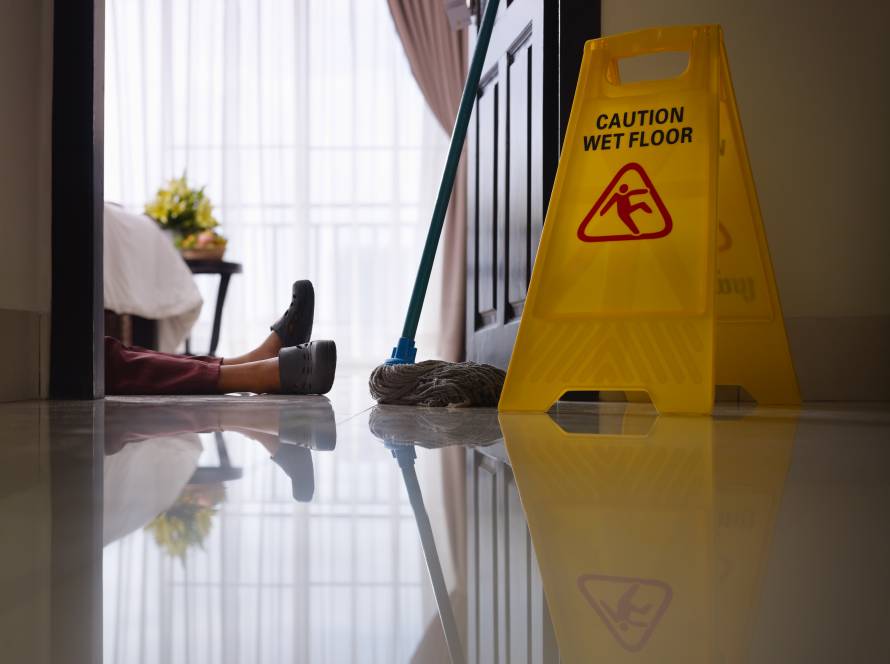In personal injury cases, establishing evidence is a fundamental aspect of asserting your claim and achieving a favorable outcome. Witness statements can be a critical element in building evidence, providing essential information that can help support your case. Witnesses can provide essential details about the events leading up to and surrounding the accident, offering an objective perspective that can corroborate your account and contribute to determining liability.
Gathering and utilizing witness statements efficiently requires a strategic approach and an understanding of their significance to a personal injury case. In this blog post, we will discuss the importance of witness statements in personal injury cases, how to obtain credible witness statements, and the role a skilled personal injury attorney can play in effectively leveraging this valuable evidence to support your claim and maximize your chances of receiving fair compensation. When you need dependable legal representation to help you navigate the complexities of personal injury cases, our dedicated team of professionals is committed to providing you with experienced guidance and unwavering support at every step of the process.
The Value of Witness Statements in Personal Injury Cases
Witness statements can be a crucial element in the success of a personal injury case. These statements offer several advantages that contribute to building a strong case:
1. Objective Perspective: Witnesses can provide an unbiased account of the critical events related to the accident. Their perspective, being detached from the people involved, can help create a more transparent and accurate understanding of the incident.
2. Corroboration of Victim’s Account: A witness statement can support the victim’s account of the accident, lending credibility to their claim. This corroboration serves to strengthen the case by providing additional evidence that supports the victim’s version of the events.
3. Determination of Liability: Witness statements detailing the events leading up to the incident can help establish fault or liability. Determining liability is central to pursuing a successful personal injury claim, as it influences the amount of compensation that can be awarded.
4. Negotiation and Litigation: Witness statements can be valuable during negotiations with insurance companies and in court proceedings. They can serve as critical evidence to help persuade the opposing party of the validity of the claim, leading to a favorable settlement or verdict.
Gathering Reliable Witness Statements
To make the most of witness statements in a personal injury case, it is crucial to obtain reliable and accurate testimonies. Here are some essential steps to follow in gathering trustworthy witness statements:
1. Identify and Approach Potential Witnesses: After an accident, identify any bystanders who may have witnessed the incident or its aftermath. Speak to them and ask if they’d be willing to provide a statement. It is essential to do this in a timely manner, as witnesses’ recollections can become less accurate over time.
2. Obtain Contact Information: Gather contact information for all potential witnesses, including their names, phone numbers, addresses, and email addresses. This information will be necessary for contacting them for further follow-up and potential involvement in the case.
3. Document Witness Testimonies: Ensure that each witness statement is documented in writing, as an audio recording, or, if possible, on video. Written statements should be signed and dated by the witness. These records provide a verifiable basis for their testimony and can be used as evidence during negotiations or litigation.
4. Be Respectful and Objective: When collecting witness statements, it is important to remain respectful, objective, and neutral. Avoid leading questions or suggesting particular answers to the witnesses. This ensures that their testimony remains unbiased and credible.
Leveraging Witness Statements with the Help of a Personal Injury Attorney
A skilled personal injury attorney is essential in maximizing the value of witness statements. They can provide invaluable assistance in collecting, organizing, and utilizing these statements effectively in a personal injury case:
1. Assessing Credibility: An experienced attorney can help assess the credibility of witness statements by examining their consistency, the witnessing events’ proximity, and the witness’s overall demeanor and reliability.
2. Organizing Evidence: With their experience handling personal injury cases, an attorney can organize evidence, ensuring that witness statements are presented effectively alongside other crucial evidence to strengthen the case.
3. Preparing Witnesses: An attorney may work with witnesses to prepare them for giving testimony in court by reviewing their statements, guiding them through the process, and addressing any concerns.
4. Negotiations and Litigation: In negotiations with insurance adjusters or court proceedings, a skilled attorney can leverage witness statements to support a fair settlement or a favorable verdict.
Conclusion
Witness statements play a vital role in personal injury cases, providing critical evidence that can help establish liability and support the victim’s account of the accident. Obtaining reliable and accurate witness statements, along with effectively leveraging this valuable evidence, requires a strategic approach backed by the expertise of a knowledgeable personal injury attorney.
With the guidance and support of Hines Law’s dedicated personal injury attorney in Orlando, you can confidently navigate the complexities of your personal injury case, armed with powerful witness statements and a steadfast commitment to obtaining the compensation you deserve.




